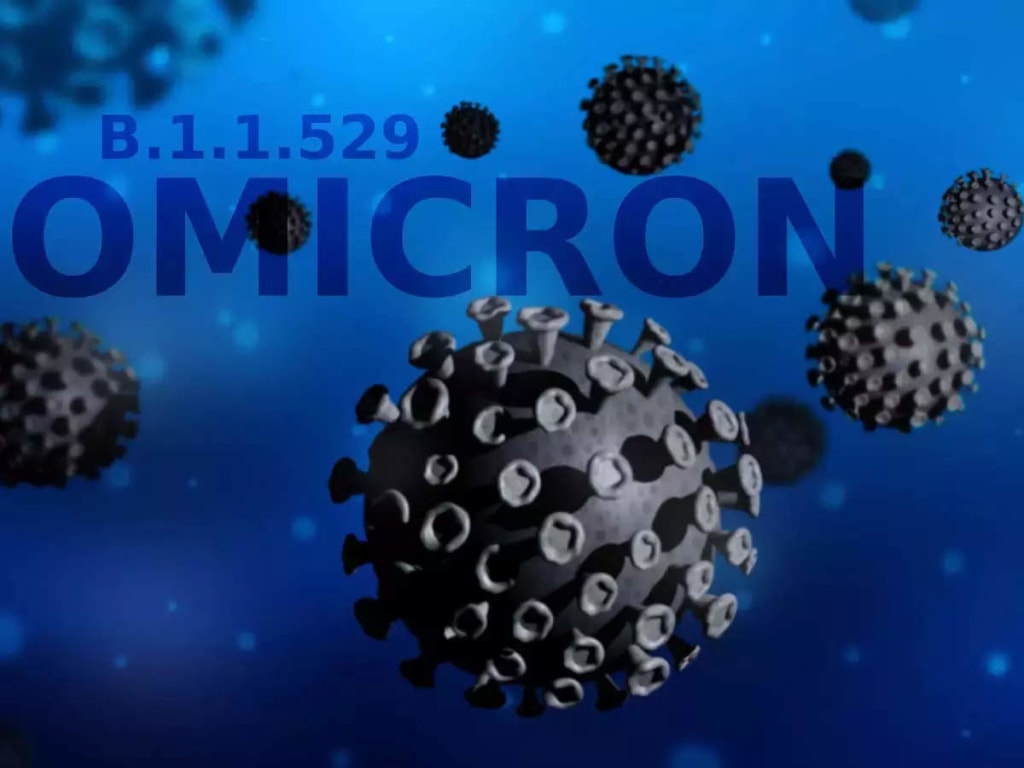The first case of the COVID Omicron Variant has been discovered in a San Diegan who has been fully vaccinated and boosted.
According to HHSA, the patient is not in a hospital and is being kept in isolation. County contact tracers are attempting to locate anyone with whom the patient may have had contact.

San Diego County health authorities revealed on Thursday that the first case of COVID-19's omicron form was discovered in a San Diegan who had been completely vaccinated and boosted against the disease.
According to the San Diego County Health and Human Services Agency, the patient had just gone overseas before testing positive for COVID-19 on Dec. 8. (HHSA). The Omicron variation was confirmed Thursday morning after a full genome sequencing.
According to HHSA, the patient is not in a hospital and is being kept in isolation. Contact tracers from the county are seeking to find out who else the patient may have met.
"We expected the Omicron variety to find its way to San Diego, and it has," said Public Health Officer Wilma Wooten, who added that there would be more instances. "We will continue to watch for the Omicron variety and will notify the public if any further cases are discovered."
In both Los Angeles and the Bay Area, many cases of patients testing positive for the omicron form have been documented. The mutation has been found through testing in 22 states and 62 nations around the world, according to the New York Times, including Canada and Mexico, which verified its first instance last Friday after a 51-year-old individual tested positive after returning from a vacation to South Africa.
Coronavirus cases have been on the rise in San Diego and elsewhere recently. Officials from the county stated on Wednesday. The 5,418 new infections recorded in the last week much outnumber the 2,955 reported the week before. The surge has been blamed on Thanksgiving parties, not the omicron type, according to authorities.
On Wednesday, a total of 562 new COVID-19 infections and 12 new fatalities were recorded in San Diego.
The county has not adjusted any public health measures as a result of the new variety, according to HHSA, but the county is continuing to work with the Centers for Disease Control and Prevention and the California Department of Public Health to see if any modifications are needed.
For the time being, the county advises taking the following precautions to safeguard against all COVID-19 variants:
Get vaccinated and boosters, which are now available to anybody aged 18 and over.
If you display any COVID-19 symptoms, regardless of vaccination status, use a mask in public indoor settings. Get tested if you show any COVID-19 symptoms.
If you're unwell, wash your hands and remain at home.
Continue to maintain your social distance.
The World Health Organization recognized variation B.1.1.529, often known as omicron, as a variant of concern on November 26, 2021. The decision was made based on data that it contains various alterations that might affect its behavior. For instance, the rate at which it spreads or the severity of the sickness it produces.
Scientists know that omicron differs genetically from prior versions, including the delta variant, but they don't sure whether these differences make it more transmissible or harmful. There is currently no evidence that the variation causes more severe illness.
It will most likely take weeks to determine whether omicron is more infectious and whether vaccinations are still effective.
Current vaccinations, according to Peter Openshaw, an experimental medicine professor at Imperial College London, are "very unlikely" to fail, as they are successful against a variety of different variations.
Despite the fact that some of the genetic alterations in omicron appear to be concerning, it is yet unknown if they will constitute a public health risk. Previous varieties, such as the beta version, concerned scientists at first but did not spread very far.
Delta is now the most common COVID-19 variant, accounting for more than 99 percent of sequences submitted to the world's largest public database.






Comments
There are no comments for this story
Be the first to respond and start the conversation.